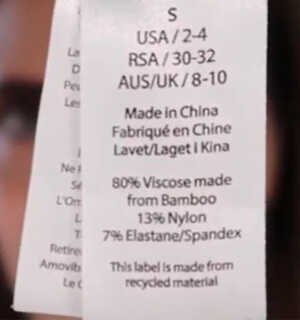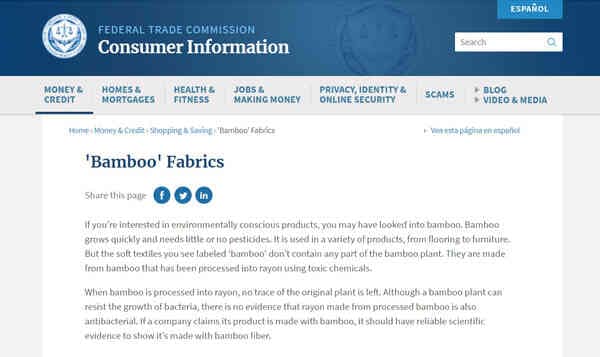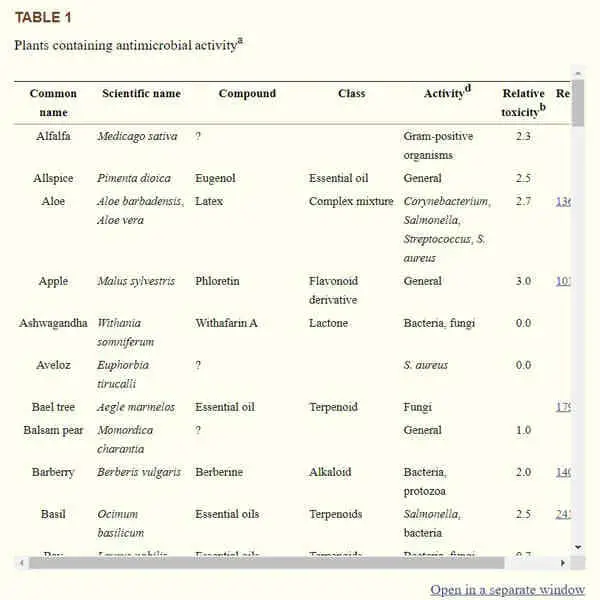Is Bamboo Antibacterial: The Truth About Bamboo Kun
As an Amazon Associate, Ecotero earns from qualifying purchases.

The bamboo plant is believed to be naturally antibacterial, and many products made of bamboo are touted to inherit this property as well.
Bamboo clothes, in particular, are often advertised as eco-friendly garments that retains the bamboo plant’s antimicrobial properties.
This makes bamboo clothing one of the go-to options among conscious consumers looking for sustainable fashion choices. However…
- Is there any scientific evidence that bamboo has natural antibacterial properties?
- If bamboo indeed is naturally antibacterial, does it mean bamboo products as well?
To help you find the truth about these questions, below are the facts regarding the antimicrobial properties of bamboo.
Let’s get started.
Is Bamboo Antibacterial?
The short answer is yes.
A 2012 study released by the Journal of The Textile Institute proved that an Australian-grown Moso bamboo (phyllostachys pubescens) has natural antibacterial agents located in the plant’s “lignin.”
Lignin is a class of complex organic polymers present in many plants’ cell walls, making them rigid, woody, and rot-resistant.
And in the case of bamboo lignin, they are responsible for protecting the bamboo plant from weather and external harm.
They also act as the storage of bamboo’s antibacterial agents.
Meanwhile, a study in Japan also established that bamboo shoot skins could be utilized as a possible antibacterial material in the future.
The research team determined that extracts from the bamboo shoot skin inhibited the growth of Staphylococcus aureus and Escherichia coli.
Imagine an antibiotic in the future extracted from bamboo.
How cool is that?
However, a plant having a natural antibacterial property is not unique to bamboo.
An article in the National Center for Biotechnology Information (NCBI) claims that plants have an almost limitless ability to synthesize substances.
Many plants can synthesize substances that act as defense mechanisms against microorganisms, pests, insects, and herbivores.
Besides bamboo, other plants also discovered to have natural antibacterial and antimicrobial properties include Apple, Chamomile, Clove, Garlic, Hemp, Onion, Turmeric, and more.
What is Bamboo Kun?
The natural antibacterial property of bamboo is commonly referred to as “Kun” or “Bamboo Kun.”
The Bamboo Kun is responsible for bamboo’s natural ability to repel most bacteria, fungi, bugs, and pests.
Bamboo Kun is the reason why bamboo can proliferate in nature even without pesticides and herbicides.
Meanwhile, most industrial crops like cotton and corn require close monitoring, proper maintenance, fertilizers, and pesticides to cultivate.
This is one of the reasons why bamboo is eco-friendly and considered a more sustainable crop.
Now, at this point, you might be wondering:
“Since bamboo is antibacterial, does this mean that bamboo products are naturally antibacterial as well?”
For instance, is bamboo cutting board antibacterial?
How about bamboo antibacterial wipes? Can they be trusted?
Do Bamboo Products have Antibacterial Properties?
Yes and no.
As the studies suggest, the antibacterial properties of bamboo are found on the bamboo lignin.
Hence, if a bamboo product is made while preserving the bamboo lignin’s integrity, that product can “potentially inherit” the antibacterial properties of bamboo.
Whether a bamboo product has antibacterial properties or not all depends on how that particular product is made.
Let’s take two popular bamboo products as an example: Bamboo clothing and bamboo sheets.
Are clothing made of bamboo fabrics antibacterial?
As you may already know, many bamboo clothing brands often tout their eco-friendly and “naturally antibacterial” clothes.
But the truth is, most of these products are neither eco-friendly nor antibacterial.
For starters, there are different kinds of bamboo fabrics.
The most commonly used bamboo fabric for the textile and clothing industry is bamboo rayon (aka bamboo viscose).
Unfortunately, bamboo rayon production involves dissolving the bamboo plant in a toxic chemical solvent.
And then reconstructing the cellulose fibers and spinning them into a usable fabric.

This chemical-intensive process of producing fabric strips bamboo of its natural properties, and the bamboo’s lignin chemical compound is lost.
No bamboo lignin, no Bamboo Kun.
Sandra Roos, a specialist in environmental analysis of textiles and chemicals, also said something about the misconception many people have about the “antibacterial properties” of bamboo fabrics.
In an interview, she said that due to the manufacturing process of some bamboo fabrics, the antibacterial elements in the bamboo trunk are not transferred to the fibers used in textile manufacturing.
Hence, the belief that all bamboo clothing are naturally antibacterial is incorrect.
The FTC (Federal Trade Commission) also added that while it’s true that the bamboo plant is antibacterial, there is no definitive proof that bamboo fabrics have the same antibacterial property.

And when it comes to another misconception that all bamboo fabrics are eco-friendly, well, we have some insider info for you.
Did you know that the process of producing bamboo rayon causes a lot of harm to the environment?
It even endangers the health of the factory workers.
Are bamboo sheets antimicrobial?
Besides bamboo clothing brands, many textile companies also claims that their bamboo bedsheets and bamboo mattresses have natural antibacterial properties.
Unfortunately, many bamboo sheets are also made with bamboo rayon and bamboo blends.
So while they can be soft and comfy, it’s most likely that they are not naturally antibacterial.
Not to mention that bamboo rayon and bamboo blend are not eco-friendly fabrics.
On that note, there are a few bamboo sheet brands that uses an eco-friendly bamboo fabric called bamboo lyocell.
Bamboo lyocell is a bamboo fabric produced using an organic compound using a “closed-loop” system that recycles and reuses their waste materials.
And while bamboo lyocell may have also lost bamboo’s antibacterial properties, it is a much greener fabric choice when shopping for bamboo sheets.
So, there you have it.
Unless a company can present scientific proof to their claims, here are no guarantee that any bamboo product has natural antibacterial, antifungal, and antimicrobial properties.
And before we end, we would like to clarify something.
We are not dismissing the idea that there could be bamboo products that indeed possess antibacterial properties.
But just like the FTC said, companies making such statements should present reliable scientific evidence to support their claims.
Final Thoughts on the Antibacterial Properties of Bamboo
By now, you already know that bamboo is naturally antibacterial.
Moreover, it can be used as a sustainable raw material for various industries, and can be cultivated with the least impact on the environment.
You also learned that while bamboo is antibacterial, this doesn’t automatically mean that “Bamboo Kun” can be found on all bamboo products as well.
So be careful with greenwashing and “hyphy” advertisements involving any bamboo product today.
Whether it’s bamboo clothing, bamboo cutlery, and other bamboo products…
Unless the company can present solid proof that their product is naturally antibacterial, take their words with a grain of salt.
And as much as we don’t want to badmouth anyone, some companies might simply be taking advantage of the bamboo hype to appeal to conscious consumers like you.
So, have you used any bamboo product that is naturally antibacterial?

